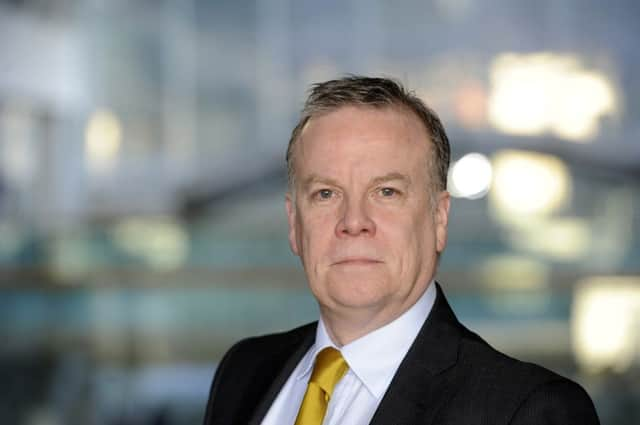Comment: Macdonald plan requires change of culture


As I revealed at the weekend, Macdonald has commissioned a group of economists to look at how Scotland should build a national economic plan and today they publish Scotland Means Business, a report that majors on the need for a more collaborative approach to decision-making.
They have broadly backed his view that Scotland requires an end to short-termism, and greater sharing of knowledge – such as research and best practice – by government, business and public sector.
Advertisement
Hide AdAdvertisement
Hide AdThe report by five teams of economists has focused on experiences in other parts of the world where the collaborative approach, together with a focus around a long-term plan, has galvanised all stakeholders in the economy and, most importantly, produced improvements in performance.
Macdonald is garnering support for N-56, named after Scotland’s position on the globe. Even so, these are grand objectives that demand nothing less than a revolution in thinking and for that reason Macdonald knows that he has his work cut out in a country that has a long history of industrial confrontation and mutual suspicion between employees and employers, government and business, and commerce and academia.
Herding opinion around one goal is a mighty task and his biggest obstacles will be self-interest, lack of imagination, risk aversion, and a willingness to do things differently. His first test will be whether politicians and business leaders give it enough attention.
New weapons in the independence war
WARNINGS from businesses about the implications of a Yes vote in the September referendum have coloured the debate since the turn of the year, few more stridently than the concerns raised by BAE Systems.
The defence giant has found itself deep in the cauldron, with threats from UK ministers about not placing orders in Scotland, and the unions demanding some clarification on their future.
It now emerges that BAE Systems director Geoff Searle has been speaking about the company’s plans for warship building on the Clyde which go beyond 2016 (the putative year of independence). The nationalists have seized on this to attack the No campaign’s arguments.
However, it is not so clear-cut as all that. In his interview with Jane’s, the defence publication, Searle notes the Scottish referendum and says the company has “no plan B” should Scotland vote to leave the United Kingdom. On one hand, this seems to confirm the company has little choice but to build ships on the Clyde. On the other, he may be repeating concerns that a Westminster government would retain a commitment not to order from a foreign country – which Scotland would become.
Either way, shipbuilding requires long-term planning and whatever the outcome of the vote, the current order book would almost certainly be fulfilled.
Advertisement
Hide AdAdvertisement
Hide AdThe big question concerns follow-on orders and last November the SNP promised that an independent government would be responsible for “procurement of frigates and maritime patrol aircraft”. It’s a bold statement. Could Scotland afford to build its own navy? Another one for the number-crunchers.